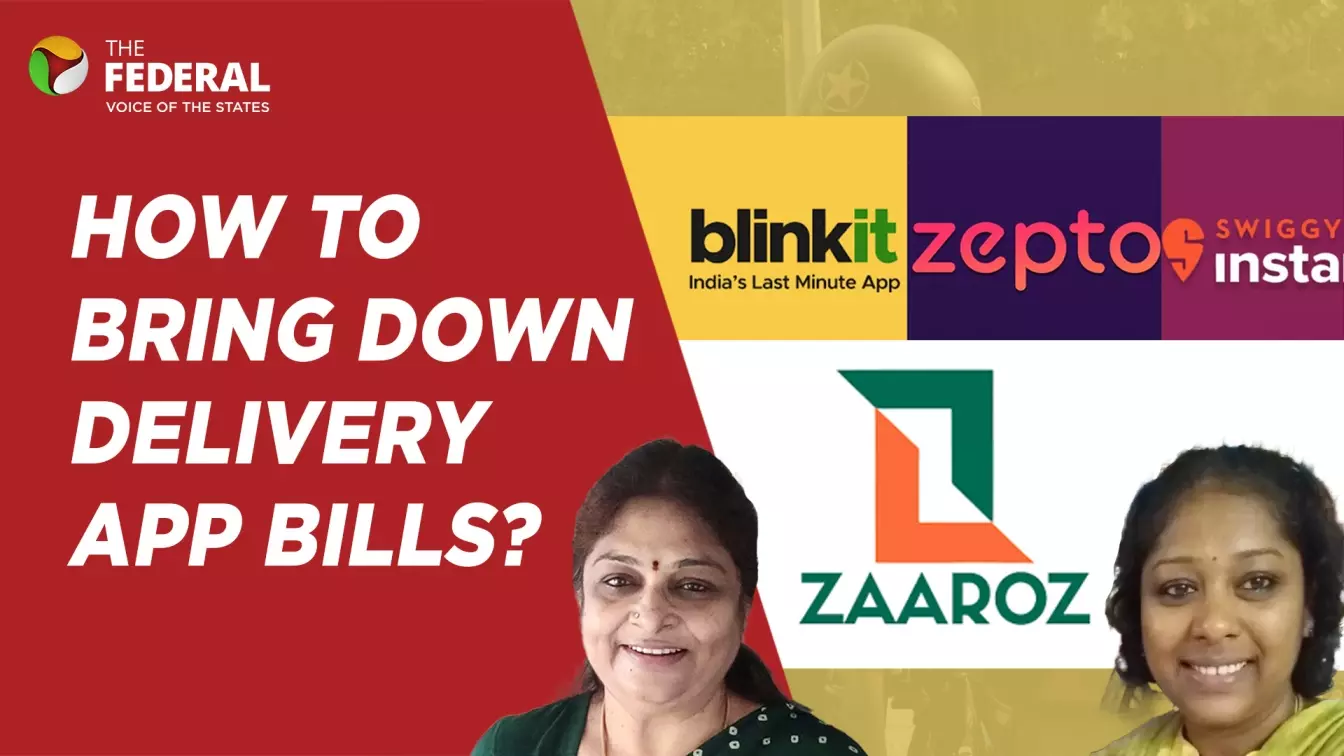
Swiggy, Blinkit or TN player Zaaroz? Consumer rights expert on Q-comm firms
S Saroja of CAG explains why users are turning away from big grocery apps like Swiggy and Zomato, and how local delivery platforms are rising in small-town India

In an interview with The Federal, S Saroja, consumer rights advocate from the Consumer Action Group (CAG), breaks down how delivery platforms like Zepto, Blinkit, Swiggy Instamart, and others levy multiple unexplained charges — and what consumers can do to protect their rights.
Consumers today pay platform fees, rain charges, handling costs and more for every order. Shouldn’t platforms be upfront about these charges?
Absolutely. Honestly, I don't think many consumers even realise how many extra charges are levied. It's the brand’s responsibility to disclose every fee clearly. At the same time, consumers must become more aware of what they’re paying for, especially when there's a cost difference between buying something in-store and via these platforms. It's every consumer’s right to know this.
If a consumer still chooses to pay for the convenience, that's fine — but that choice must be informed.
Why do customers keep using these apps despite the fees? What builds their trust?
Primarily, it’s the delivery speed. The convenience of ordering from home and getting items delivered quickly is a huge plus. If the app interface is user-friendly and customers can find everything they need in one place, that builds trust.
Reliability also plays a big role — if the product consistently arrives on time and as described, consumers are more likely to keep using the app. So a combination of usability, speed, and availability fosters brand loyalty.
Are national-level quick-commerce platforms being transparent with pricing and service quality?
Not always. But the Central Consumer Protection Authority (CCPA), set up under the Consumer Protection Act of 2019, is actively watching. For example, they recently investigated an issue where platforms charged iPhone users more than Android users — a clear case of differential pricing.
They’ve also issued notices to platforms like Zepto asking them to prove claims like “10-minute delivery.” These measures help prevent misleading advertisements and push platforms to be accountable.
Dark patterns — manipulative tactics that nudge consumers to make certain choices — are also being addressed. The CCPA has proposed guidelines to regulate these practices.
What grievance redressal options exist for customers who feel cheated by delivery apps?
There are several. First, consumers can call the National Consumer Helpline at 1915. It accepts all types of complaints and follows up with the opposite party.
Second, they can approach consumer groups like ours — the Consumer Action Group — for help. We often represent consumers in discussions with companies.
Finally, they can file a complaint in a Consumer Commission (formerly consumer courts), which is a formal way to seek justice.
Smaller apps like Tamil Nadu-based Zaaroz are becoming popular because they reduce these fees. Will they succeed?
If they reduce charges and pass on the benefits to consumers, they certainly have a competitive edge. Their understanding of local consumption patterns, cultural nuances, and preferences gives them an advantage.
These platforms may also foster better relationships with local vendors, leading to more personalized and reliable service. If they can maintain low costs and high customer satisfaction, they could become very successful alternatives to big national platforms.
The content above has been transcribed from video using a fine-tuned AI model. To ensure accuracy, quality, and editorial integrity, we employ a Human-In-The-Loop (HITL) process. While AI assists in creating the initial draft, our experienced editorial team carefully reviews, edits, and refines the content before publication. At The Federal, we combine the efficiency of AI with the expertise of human editors to deliver reliable and insightful journalism.

